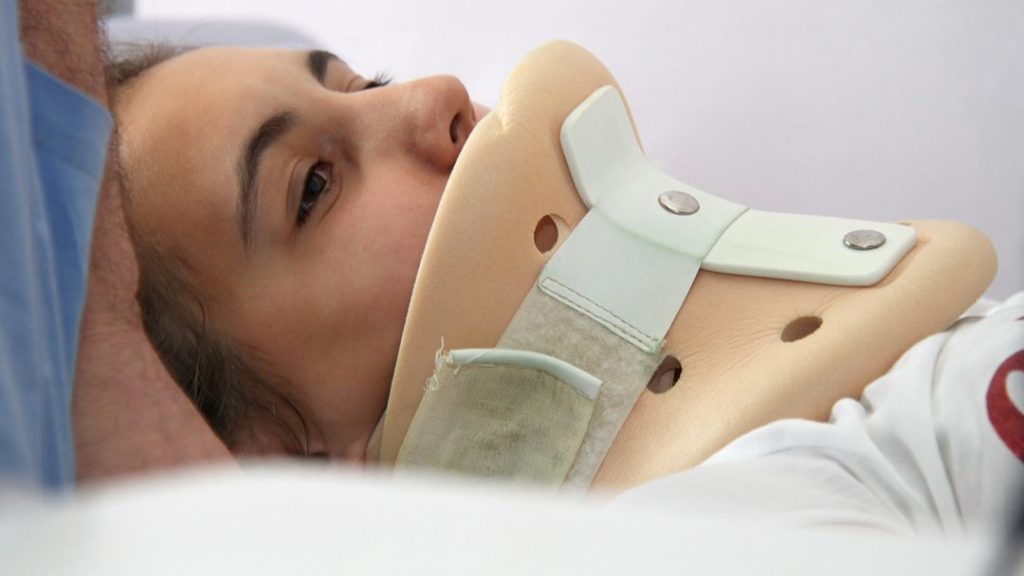
Protect Your Rights After a Car Accident
What Are Your Rights After A Car Accident
The aftermath of a car accident often leaves victims in a whirlwind of emotions, ranging from shock to anguish. It’s wholly understandable to grapple with such feelings given the suddenness and potential severity of the event. But even in such trying times, there’s hope. Taking the right steps post-accident can pave the way for obtaining the justice and compensation one rightfully deserves.
However, it’s imperative to act promptly. While it is possible to seek compensation from those responsible for your injury, there are filing deadlines. Missing these can jeopardize your rights to essential benefits, including coverage for medical bills and lost wages.
Fortunately, you don’t have to navigate this path alone. The Law Offices of Stuart Kerner stands ready to guide and educate victims on their rights, ensuring timely and effective action is taken to safeguard their interests.
What Are Your Rights After A Car Accident?
Navigating the aftermath of a car accident in New York requires an understanding of the specific rights afforded to drivers and passengers within the state. Here’s an overview:
Right to No-Fault Benefits: New York is a no-fault state. This means that, regardless of who caused the accident, you typically have the right to receive benefits from your own insurance company for medical expenses, lost wages, and other essential economic losses.
Right to Sue in Serious Cases: While the no-fault system limits the ability to sue, if your injuries are deemed “serious” as defined by New York law, or if your economic losses surpass $50,000, you retain the right to file a lawsuit against the at-fault party. “Serious injuries” can range from significant disfigurement to a medically determined injury or impairment lasting at least 90 days.
Right to Property Damage Claims: You can file a claim against the at-fault driver for damage to your vehicle or other property, separate from personal injury claims.
Right to Legal Representation: If you’re involved in a dispute related to the accident, you have the right to seek legal representation to ensure your interests are protected, especially when negotiating with insurance companies or pursuing litigation.
Right to Remain Silent: After an accident, while you should cooperate with law enforcement, you have the right to remain silent about the specifics of the accident to avoid self-incrimination. This is especially important when speaking with the other party’s insurance company.
Right to Fair Compensation: If you’re pursuing a claim outside the no-fault system, you have the right to seek compensation for pain and suffering, emotional distress, and other non-economic damages, in addition to full economic damages not covered by your personal insurance.
Right to Privacy: Your medical records related to the accident are private. Unless you’re filing a claim that makes your health an issue, others aren’t usually entitled to this information.
Understanding these rights is crucial for anyone involved in a car accident in New York. It can dictate the steps you take after the accident and guide your interactions with insurance companies, law enforcement, and the legal system.
What To Do After A Car Accident?
Here’s what you should consider after getting involve in a car accident in New York:
Ensure Safety First: Check if you or any other individuals are injured. If yes, call 911 immediately. Move to a safe location if it’s possible without causing further injury.
Report the Accident: Always contact the police, even for minor accidents. Having a police report can be invaluable when filing an insurance claim.
Exchange Information: Obtain the names, addresses, phone numbers, insurance details, and license plate numbers of all involved parties.
Document the Scene: Take photos of the accident scene, damages, injuries, and any contributing factors (like malfunctioning traffic signals).
Seek Medical Attention: Even if injuries seem minor, getting a medical check-up can uncover latent injuries and provide a record of any harm sustained.
Notify Your Insurance Company: Given that New York is a no-fault state, you’ll typically file a claim with your own insurance, regardless of who was at fault. This can cover basic expenses without the need to determine blame first.
Be Mindful of Deadlines: It’s crucial to file claims promptly. Improper or delayed filing can jeopardize a car accident lawsuit or result in the denial of an insurance claim.
Consult an Attorney: Given the intricacies of New York’s no-fault laws and the potential implications of improper filing, it’s wise to consult with legal professionals. They can guide you through the process, ensuring that your rights are protected and you receive the compensation you deserve.
Avoid Giving Statements: Until you’ve spoken with an attorney, it’s best to avoid giving statements to other parties’ insurance providers, as these can be used against you later.
Keep Records: Maintain a file with all accident-related documents, including medical bills, repair invoices, and any correspondence with insurance companies or legal representatives.
By following these steps and being aware of New York’s no-fault stance on car accidents, you can navigate the post-accident process with confidence and ensure that your rights are fully protected.
How to Initiate a Legal Action for Severe Personal Injury from a Car Accident in New York?
Filing a lawsuit for serious personal injury resulting from a car accident in New York requires a sequence of steps, ensuring you adhere to the state’s legal requirements and standards. Here’s a step-by-step guide:
- Determine “Serious Injury” Threshold: New York’s no-fault system limits the ability to sue unless the injury meets the “serious injury” threshold. Examples include significant disfigurement, fractures, permanent limitation of a body organ, or a medically determined injury lasting at least 90 days post-accident.
- Consult an Attorney: Before proceeding, it’s advisable to consult a personal injury attorney who has experience with New York’s car accident laws. They can assess the validity of your claim, guide you through the process, and represent your interests.
- Gather Evidence:
- Collect all pertinent documentation: medical records, photographs of injuries, police reports, witness statements, and any other evidence relevant to your claim.
- Document expenses: medical bills, lost wages, property damage, and other out-of-pocket costs.
- Notice of Claim: If your lawsuit is against a municipal entity (like a city bus), you’ll need to file a “Notice of Claim” against the municipality, usually within 90 days of the accident.
- Prepare and File a Complaint: This legal document outlines the facts of the case, the legal basis for the lawsuit, and the damages you’re seeking. Once prepared, it needs to be filed with the appropriate New York state court.
- Serve the Defendant: After filing the complaint, you (or rather, your attorney) will serve it to the defendant, notifying them of the lawsuit. They typically have a specified time to respond, usually 20-30 days.
- Engage in Discovery: This phase involves both sides exchanging information and evidence. It may include interrogatories (written questions), depositions (sworn out-of-court testimonies), and requests for documents.
- Negotiation & Settlement: Many cases are settled before reaching trial. Your attorney will negotiate with the defendant or their insurance company to reach a fair compensation agreement. If a settlement is reached, the lawsuit ends.
- Trial: If no settlement is achieved, the case goes to trial. Both sides present their evidence, and either a judge or a jury will render a verdict. If the verdict is in your favor, they’ll determine the compensation you should receive.
- Post-Trial & Appeals: If either party disagrees with the trial outcome, they may appeal to a higher court. This can extend the resolution time of the case.
- Statute of Limitations: Remember, in New York, you generally have three years from the date of the accident to file a personal injury lawsuit. Missing this deadline can bar you from pursuing compensation.
Given the complexities of New York law and the importance of timely actions, having an experienced attorney to navigate this process is vital. They’ll ensure all procedural requirements are met and work to secure the best possible outcome for your case.
Reasons Why Your Car Accident Damages Claim Would Be Denied In New York
Understanding the reasons behind claim denials can better prepare individuals when seeking compensation after a car accident in New York. Here are some common reasons why your car accident damages claim might be denied:
- Lack of “Serious Injury”: In New York’s no-fault system, to step outside and sue, you must meet the “serious injury” threshold. If your injuries are not deemed “serious” as per the state’s definition, your claim might be denied.
- Policy Exclusions: Insurance policies might have exclusions that apply to specific situations or types of damage. If your accident falls under one of these exclusions, your claim could be denied.
- Expired Policy: If the at-fault driver’s insurance policy had lapsed or expired at the time of the accident, the insurance company would deny the claim.
- Late Filing: If you failed to report the accident to your insurance company within the time frame specified in your policy, your claim might be denied.
- Unregistered Vehicle: If the vehicle involved was not registered or the driver was unlicensed, insurance claims could be denied.
- Violation of Policy Terms: Engaging in illegal activities or violating the terms of the policy, such as driving under the influence, can result in a claim denial.
- Insufficient Documentation: Failure to provide adequate documentation or evidence to support your claim—such as medical records, police reports, or proof of expenses—can lead to denial.
- Misrepresentation or Fraud: If the insurance company has reasons to believe that you’ve misrepresented facts or attempted to commit fraud, they’ll likely deny the claim.
- Policy Limits: If the damages exceed the at-fault party’s policy limits, you may not receive full compensation unless you have underinsured motorist coverage or pursue a lawsuit.
- Disputed Liability: If the insurance company believes their policyholder was not at fault, or if there’s a dispute about the degree of fault, they may deny the claim or offer a reduced amount.
- Failure to Seek Timely Medical Attention: If you didn’t seek medical attention shortly after the accident, the insurer might argue that your injuries are not related to the crash, leading to denial.
It’s beneficial to consult with a legal professional if your car accident damages claim is denied. An experienced attorney can provide guidance, challenge the denial, and work to secure the compensation you deserve.
What Compensations Can I Get From My Car Accident Lawsuit In New York?
In New York, if you’ve been injured in a car accident and meet the “serious injury” threshold that allows you to step outside the no-fault system, you may be eligible for various types of compensation. Here are the potential compensations you can pursue through a car accident lawsuit:
- Medical Expenses: This can include current medical bills as well as estimated future costs related to the accident. It covers doctor visits, surgeries, physical therapy, medication, medical devices, and any other relevant medical treatments.
- Lost Wages: Compensation for income lost due to time off work as a result of the accident. If the injury affects your ability to earn in the future, you might also be compensated for lost earning capacity.
- Property Damage: Costs associated with repairing or replacing your vehicle and any other personal property damaged in the accident.
- Pain and Suffering: Compensation for physical pain and emotional distress resulting from the accident. This can include trauma, mental anguish, depression, anxiety, and other psychological effects.
- Loss of Consortium: If the injury adversely affects the relationship between spouses, the uninjured spouse might be entitled to compensation.
- Loss of Enjoyment: Compensation for the inability to enjoy daily activities, hobbies, and other pleasures of life due to the injuries sustained.
- Wrongful Death: If the car accident resulted in death, surviving family members might seek compensation for funeral costs, loss of companionship, lost future income, and other related damages.
- Punitive Damages: In cases where the defendant’s actions were especially reckless or malicious, the court might award punitive damages to punish the defendant and deter similar behavior in the future. However, punitive damages are relatively rare in car accident cases.
- Out-of-Pocket Expenses: You might be compensated for various miscellaneous expenses related to the accident, such as travel expenses for medical treatments or costs for hiring help at home due to your injuries.
Remember, the exact compensation you can claim will depend on the specifics of your case, including the severity of injuries, the circumstances of the accident, and evidence presented. Consulting with a knowledgeable attorney in New York can provide a clearer picture of potential compensations based on your unique situation.
Wrap Up
Navigating the aftermath of a car accident in New York can be complex due to its no-fault system. Victims have specific rights, such as obtaining no-fault benefits, the potential to sue in serious cases, claims for property damage, seeking legal representation, and more. It’s crucial to take specific steps post-accident, including ensuring safety, reporting the accident, seeking medical attention, and consulting an attorney. Legal action in New York requires adhering to its legal standards and understanding potential reasons for claim denials. However, if one meets the “serious injury” threshold, they can pursue various compensations including medical expenses, lost wages, pain and suffering, and more. The guidance of an experienced attorney is indispensable in ensuring victims’ rights and interests are protected.


